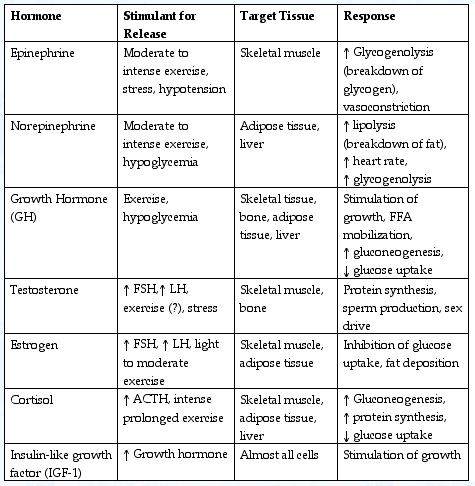
MUSCLE QUALITY AND THE ENDOCRINE SYSTEM: PART 2
In our last blog post, we discussed the different components of the endocrine system and how the combination of Right Intensity Training™ and following our recommended nutrition guidelines can enhance the function of the entire system, leading to great improvements in overall health. Read Muscle Quality and the Endocrine System: Part 1.

MUSCLE QUALITY AND THE ENDOCRINE SYSTEM: PART 2
The healthy operation of the endocrine system is essentially a two part process. First the endocrine system must be able to produce hormones while the second part is the body’s ability to absorb and utilize the hormones.
A perfect example of this is the insulin response our body has when we eat. After eating, based primarily on our carbohydrate consumption, our body’s blood sugar rises. The endocrine system, specifically the Pancreas, produces insulin to escort the glucose into our cells. Insulin receptors on the cells determine if, and how much, glucose the cell can take. The entire process, along with the health of the Pancreas, results in producing the requisite amount of glucose. The cell’s ability to take in that glucose regulates in part our metabolism and weight gain. (When this process fails, type II diabetes is the result).
REGULATING INSULIN LEVELS
Right Intensity Training™ and The Exercise Coach® Nutrition Playbook are designed specifically to optimize the function of this aspect of the endocrine system in two ways. First, by eating the proper foods that promote health we can ensure an appropriate amount of insulin is released by the pancreas. Remember, when insulin levels are high we store fat and it’s impossible to lose fat. Second, by performing our brand of exercise we create the opportunity in the body not just to be more adept at taking on the excess glucose into our muscles and lowering insulin but also help those cells become more sensitive to insulin. It’s important to emphasize in our quest to restore and maintain our health, insulin sensitivity plays a most significant role. On the other hand, aerobic exercise and less demanding work performed by our muscular system will produce no change in this process.
Not to beat a dead horse, but the idea that aerobic or steady-state activity can produce the same type of hormonal response and lasting impact with regards to fat loss is just not true.
The pancreas is just one example of this dual-process. And in order to create the perfect environment we need to do two things:
- Stop eating so many carbohydrates. This will prevent the pancreas from burning out like it does in type II diabetes.
- Perform Right Intensity Training™. This allows our insulin sensitivity to improve, deplete stored glycogen and improve our ability to metabolize sugar.
In our previous post we looked at the various glands that comprise the endocrine system, gave a brief synopsis and an example of how The Exercise Coach® program can help the regulation and utilization of these hormones.

SUMMARY
The endocrine system is controlled directly by stimulation from the nervous system as well as by chemical receptors in the blood and hormones produced by other glands. By regulating the functions of organs in the body, these glands help to maintain the body’s homeostasis, cellular metabolism, reproduction, sexual development, sugar and mineral homeostasis, heart rate, and digestion. The bottom line is, we need to put ourselves in the best possible position to succeed. We do this by stimulating the production and release of the necessary hormones as well as putting various cells, organs, tissues and systems in position to utilize the hormones. Through Right Intensity Training™ and proper nutrition, The Exercise Coach® will help this happen.

Read the rest of this series:
Muscle Quality: Improving It Will Change Your Life
Muscle Quality and the Neurological System: Part 1
Muscle Quality and the Neurological System: Part 2
Muscle Quality and Cardiovascular Health
The Downside to prolonged “Cardio”
Muscle Quality and Osteoporosis
How to Combat Osteoporosis through Strength Training
Muscle Quality and Gastrointestinal Health
Muscle Quality and Inflammation
Muscle Quality and Brain Health